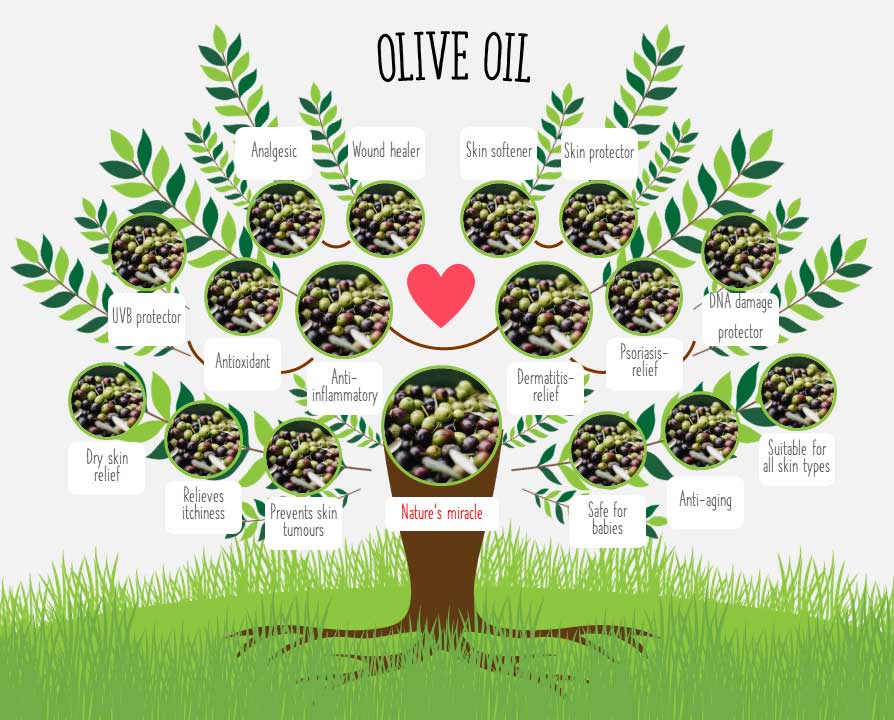Olive Oil: The Ancient Remedy for Modern Skincare and Its Role in LEON Luxury’s Skincare range
The Ancient Remedy for Modern Skincare Challenges
Explore the diverse benefits of extra virgin olive oil in treating common dermatological conditions like xerosis and pruritis. Learn how its rich antioxidant and anti-inflammatory properties can protect and rejuvenate your skin, from ancient cosmetic uses to modern skincare solutions. Discover why Leon Luxury skincare products embrace the natural healing power of olive oil.
Known as the crown jewel of the Mediterranean landscape, the olive trees are under significant threat from extreme weather conditions, pests and a deadly pathogen that is fatal to their survival. For millennia, the olive oil has been at the very heart of what the modern society calls a “healthy diet” or the “Mediterranean diet”. While a bottle of olive oil can be found in many kitchens around the UK and not only, the same cannot be said about skincare products that contain organic or extra virgin olive oil. We hope this article will shed a different light on the incredible, clinically proven, properties of the olive oil, and why it is also used in our Leon Luxury skincare products.
Ancient Wisdom Meets Modern Medicine
Diseases of the skin are now a global public health issue. Xerosis (dry skin) and pruritis (itch), the most common dermatological conditions, result from damage to the skin – the body’s largest organ. Wrinkles, xerosis, and pruritis can be treated with molecules found naturally in the olive oil, molecules which have antioxidant and anti-inflammatory effects.
Since remote times, olive oil has been used as a cosmetic and skin protector. The ancient Egyptians used it to make creams and perfumes, and it is said that the first anti-wrinkle cream was invented by Cleopatra.
Nutrient-Rich and Healing: The Science Behind Virgin Olive Oil’s Skin Benefits
Virgin olive oil contains 150 to 200 mg/kg α-tocopherol with an optimum E/polyunsaturated fatty acid ratio (milligrams of vitamin E per gram of polyunsaturates). This ratio, which should never be less than 0.5, is hardly ever found in seed oils, but in extra virgin oil it is 1.5 to 2.
The similarity of virgin olive oil’s composition to sebum, given by its high content of squalene, β-sitosterol content, optimum fatty acids content (the presence of oleic acid, which acts as a skin softener), and wealth of antioxidant substances, makes it particularly able to directly protect the skin.
Fibroblasts contribute to maintaining tissue integrity and homeostasis and are a key cell population in wound healing. This cell population can be stimulated by some bioactive compounds such as extra virgin olive oil (EVOO) polyphenols. The phenolic compounds present in EVOO are renowned for their antioxidant properties, as they function as chain breakers by donating hydrogen radicals to peroxyl radicals that are produced by lipid oxidation. These polyphenols have also been shown to be effective in the prevention and treatment of various pathologies such as cancer and rheumatoid arthritis, among others.
Healing Touch: Olive Oil Cream Reduces Dermatitis in Premature Infants
Between October 2004 and November 2006, 173 infants between 25 and 36 weeks of gestation admitted to a neonatal intensive care unit were enrolled in a study to investigate the cutaneous effects of two different topical ointment therapies. Those treated with olive oil cream (70% lanoline, 30% olive oil) showed statistically less dermatitis than the neonates treated with emollient cream did.

Sun Protection and Beyond: Olive Oil’s Role in Reducing UV Damage and Skin Cancer Risks
Olive oil also contains oleocantal, a cyclooxygenase inhibitor with anti-inflammatory and analgesic properties similar to the non-steroidal anti-inflammatory drug ibuprofen. The olive oil may also be used to protect the skin from the ultraviolet B in the sunlight, based on a study reporting that mice receiving olive oil after UVB exposure showed a significantly lower number of developing tumours per mouse than those in the control group receiving nothing.
We are all aware of the risks associated with sunlight exposure, particularly that of skin cancer. A group of Japanese researchers conducted further research to demonstrate that the olive oil not only reduces the risk of ultraviolet (UV)-induced carcinogenesis, but it also has a significant impact on reducing skin-ageing. As such, 25 years ago, in one of the first studies of its kind, it was proved that olive oil topically applied on mice after UVB exposure can effectively reduce UVB-induced murine skin tumours, possibly via its antioxidant effects in reducing DNA damage by reactive oxygen species.
Healing Power of Virgin Olive Oil in Adult Atopic Dermatitis: Insights from Recent Studies
According to the Skin Health Journal (2023), the UK estimates for adults affected by atopic dermatitis range between 1.5% and 9.9%. In a study on the antibacterial and emollient effects of virgin olive oils in adult atopic dermatitis, it was proved that virgin olive oils moisturise dryness and may remove Staphylococcus aureus from colonised atopic dermatitis skin.
THE LUXURY OF NATURE
The extra virgin olive oil is a natural healer, and its numerous health-related properties are well researched and established. As a manufacturer of natural luxury skincare items, we understand all too well the fantastic benefits of olive oil, and that is why we use it in its purest, organic and extra virgin form in our entire soap range and leave-on exfoliating body butter.



